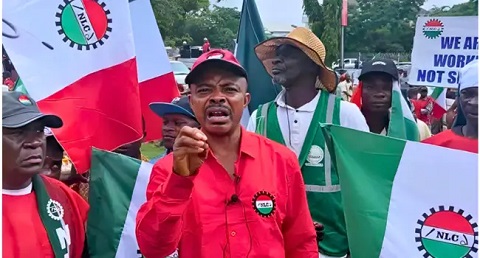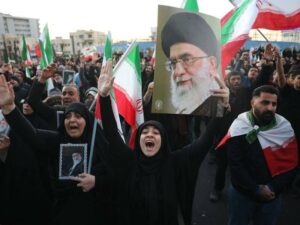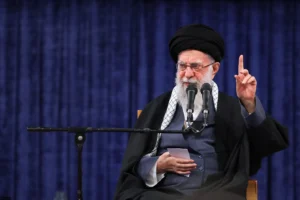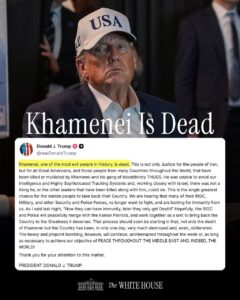The Nigeria Labour Congress (NLC) has raised alarms over the ongoing struggles faced by Nigerian workers due to rising petrol prices. According to the NLC, the sharp increase in fuel prices has nullified the benefits of the proposed N70,000 minimum wage, even before its implementation. This has added to the frustration and suffering experienced by many Nigerians, particularly the working class.
At the opening of a two-day workshop on the “2024 National Minimum Wage Act” held in Lagos, NLC President Joe Ajaero expressed deep concern about how the rising cost of petrol has affected Nigerian workers. The workshop, which focused on strategies for effectively implementing the new minimum wage, became a platform for the NLC to highlight the challenges posed by fuel price increases.
Ajaero explained that the labour movement felt deceived by President Bola Tinubu during negotiations regarding the minimum wage. He recalled that the president initially offered to raise the wage to N250,000, but this proposal was tied to another hike in petrol prices. The NLC rejected the offer, fearing that any wage increase tied to a rise in fuel costs would not benefit the workers. In fact, Ajaero pointed out that even if the N250,000 wage had been accepted, it would still fall short of addressing the hardships caused by higher fuel prices.
“Even the N250,000 may not be useful to us. If we continue to increase salaries while fuel prices rise, it will make a mess of our economy,” Ajaero stated during the workshop. “In fact, that N250,000 may not be enough to even buy fuel.”
According to Ajaero, the negotiations with the government were filled with tension and distrust. He revealed that the labour movement felt “betrayed” by President Tinubu during the wage talks. During the discussions, the president reportedly gave the NLC one hour to decide between accepting a higher wage or allowing a rise in petrol prices. This ultimatum, Ajaero said, was unacceptable to the labour movement, which led them to push back on the government’s proposals.
Additionally, Ajaero accused the government of using tactics to distract and divide the labour movement. He mentioned that false allegations against labour leaders, such as accusations of cybercrime or financing terrorism, were used to divert attention from the real issues facing Nigerian workers.
“There is a tactic to distract our attention, to call us names, level allegations against us over cybercrime, financing terrorism, sponsoring terrorism, and the rest. Those things have paid off because while we are facing those allegations, this issue of the pump price has remained.”
Ajaero highlighted the daily struggles of ordinary Nigerians, stating that the current economic realities have left many people unable to cope with the rising cost of living. With the prices of essential goods and services skyrocketing alongside fuel prices, Nigerian workers are facing severe hardship. The proposed N70,000 minimum wage, which was initially seen as a relief for low-income earners, now appears insignificant in the face of the growing economic crisis.
He also emphasized that hunger, poverty, and frustration are becoming widespread, urging the government to take urgent steps to address these issues before they spiral out of control.
“Nigerians are really suffering. There’s hunger and poverty everywhere. The government must act before things go out of hand.”
Aside from issues with the government, the NLC also faced opposition from private sector employers during wage discussions. Ajaero revealed that many private sector employers resisted the wage increase, arguing that they could not afford to pay the proposed N70,000 minimum wage. This resistance made negotiations even more challenging for the labour movement, as they had to navigate the interests of both the private sector and the government.
“The private sector employers gave us a tough time. They refused to shift their position and wanted to vote with the state and federal governments, all against labour.”
The NLC, however, remains committed to ensuring that Nigerian workers receive a fair wage that reflects the realities of the current economy. Despite the resistance from various sectors, Ajaero reiterated that the labour movement would continue to push for better wages and improved working conditions for all Nigerians.
In conclusion, the NLC has made it clear that the proposed N70,000 minimum wage may not be sufficient to offset the rising costs of fuel and living expenses. As such, the NLC is calling on the government to urgently address the root causes of the economic crisis, particularly the soaring petrol prices, which are directly impacting the lives of millions of Nigerians. Without such action, the NLC warns that the minimum wage, no matter the amount, will be rendered meaningless.
The labour movement is also urging the government to engage in sincere and transparent dialogue with the NLC to find solutions that will benefit the entire workforce. As Ajaero pointed out, Nigerian workers are the backbone of the economy, and their well-being should be a top priority for the government.
Petrol Price Impact: The NLC warns that rising fuel prices have eroded the benefits of the proposed N70,000 minimum wage before its implementation.
Deception Claims: The labour movement feels betrayed by President Tinubu during negotiations, particularly over tying wage increases to petrol price hikes.
Economic Hardship: The NLC highlights the growing hunger, poverty, and frustration among Nigerians, calling for immediate government intervention.
Private Sector Resistance: Private sector employers have resisted the wage increase, adding to the NLC’s challenges in negotiations.
The NLC remains firm in its fight for better wages and improved conditions for Nigerian workers, but it emphasizes that without addressing fuel prices, wage increases will have little positive impact.







